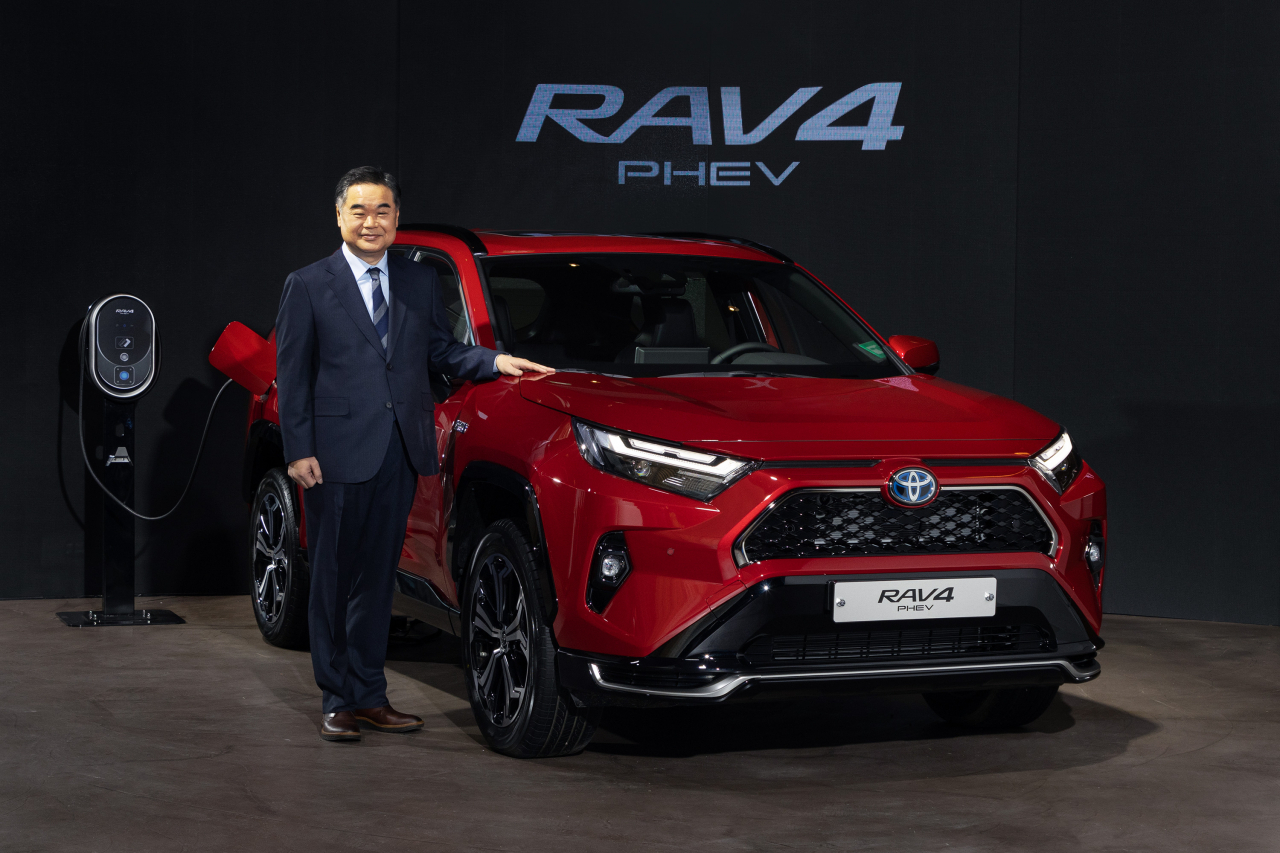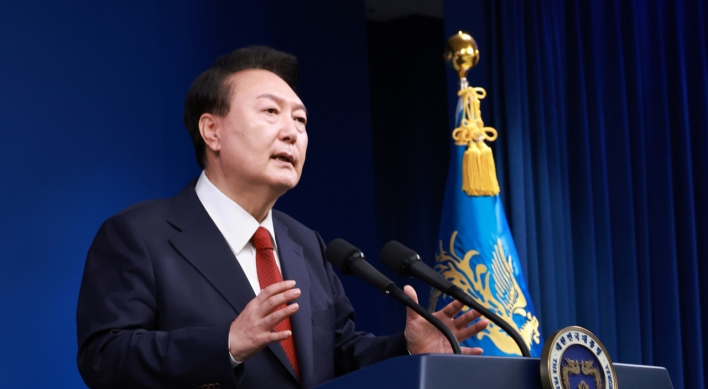Toyota aims to win back Korean customers
Japanese carmaker to debut eight new EVs this year in Korea, seeking a turnaround after years of supply chain disruptions, diplomatic tensions
By Kan Hyeong-wooPublished : Feb. 21, 2023 - 15:34

Toyota will release eight new electric vehicles in South Korea to ramp up its automation lineup to meet the diversifying needs of local customers this year, Toyota Motor Korea said Tuesday as it announced the launch of its RAV4 plug-in hybrid electric vehicle.
According to the Japanese automaker, the Korean office has set 2023 as a turning point to implement the global headquarters’ “multipathway” strategy that aims to offer a varied selection of automated vehicles in different parts of the world to cope with regional energy circumstances and different customer needs.
“The sales proportion of automated vehicles including the hybrid models at Toyota Motor Korea reached 98 percent for Lexus and 94 percent for Toyota last year. We are very proud of this as (the numbers) were No. 1 among all of Toyota’s global markets,” said Konyama Manabu, the recently appointed CEO of Toyota Motor Korea, in a press conference held at Toyota’s multicultural complex Connect To in Seoul.
Konyama, who joined Toyota in 1990, took the leading position at the Korean office in January after decades of experience in research and overseas sales and marketing.
“Korea is sensitive to new trends. We will introduce powertrains and automation that can meet customer’s various needs and lifestyles and also fit the driving environment here,” he said. “The support and trust from Korean customers are big assets. They will bring a bright future for the automation we envision moving forward.”
Beginning with Tuesday’s launch of RAV4 PHEV model, Toyota Motor Korea will introduce two Lexus vehicles: RZ, a battery-powered electric sport utility vehicle, and the fully changed RX, the brand’s second PHEV model. The Japanese automaker said it will launch five more Toyota vehicles: the hybrid electric vehicle version of the flagship sedan Crown, hybrid electric minivan Alphard, hybrid electric SUV Highlander, fifth-generation PHEV Prius and Toyota’s first battery electric vehicle bZ4X.
Although the company did not give the specific launch dates for the two new Lexus models, it said the releases of the Toyota vehicles will take place in the second half of this year or early next year.
The automaker underscored the importance of customer experience, noting it will continue to enhance its presales and after-sales services through digitization efforts such as introducing artificial intelligence at call reception centers and offering customer-tailored consultations.
The CEO acknowledged that there are difficulties with the supply chain, but reaffirmed he is committed to speeding up vehicle delivery for Korean customers in the short term.
“I’m the CEO of Toyota Motor Korea, but an employee of the (global) headquarters at the same time. I will communicate with the headquarters about how important it is to receive high ratings in the Korean society for (our global perspective),” he said.
Asked about views that Toyota's entrance into the EV transition is coming relatively late, Konyama pointed out that Toyota is one of the rare automakers anywhere that produces its own batteries. He said Toyota will continue to develop both the battery and vehicle while aiming to produce BEVs that can guarantee safety and trust, adding the automaker is reviewing various options such as hydrogen-powered engines or e-fuel produced with electricity from renewable sources.









![[KH Explains] Can tech firms' AI alliances take on Nvidia?](http://res.heraldm.com/phpwas/restmb_idxmake.php?idx=644&simg=/content/image/2024/05/07/20240507050619_0.jpg&u=)








![[K-pop’s dilemma] Time, profit pressures work against originality](http://res.heraldm.com/phpwas/restmb_idxmake.php?idx=652&simg=/content/image/2024/05/08/20240508050705_0.jpg&u=20240508171126)
![[Today’s K-pop] NCT Dream to drop pre-release from 2nd Japan single](http://res.heraldm.com/phpwas/restmb_idxmake.php?idx=642&simg=/content/image/2024/05/08/20240508050725_0.jpg&u=)